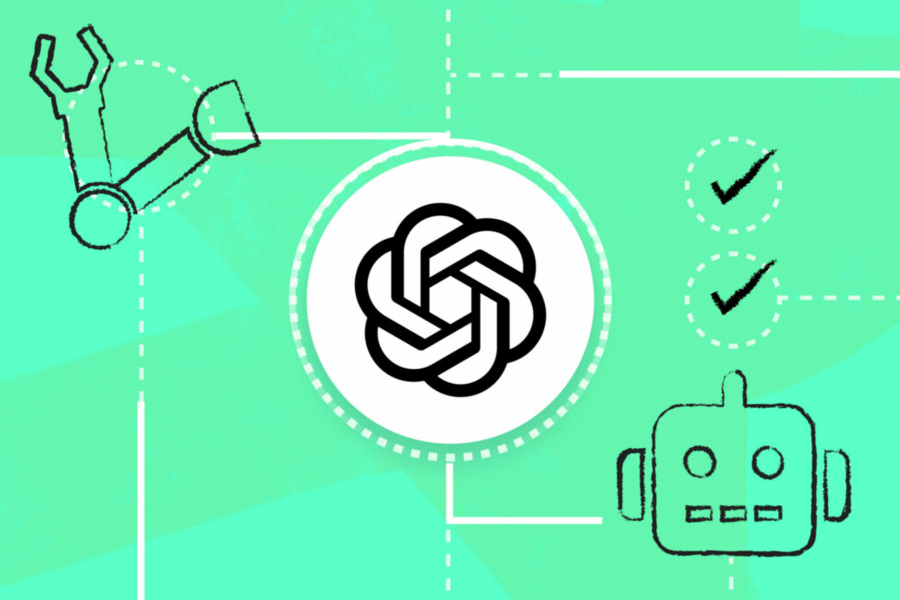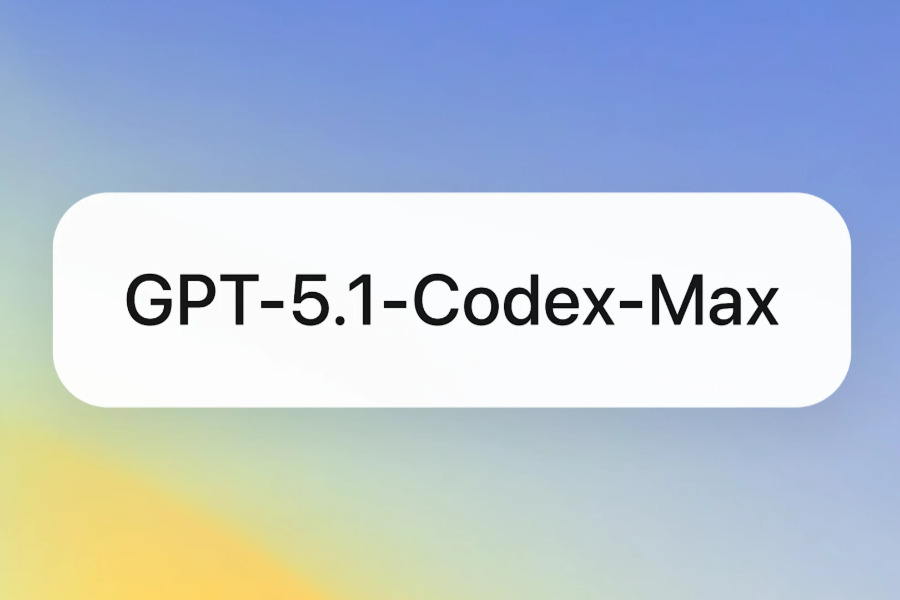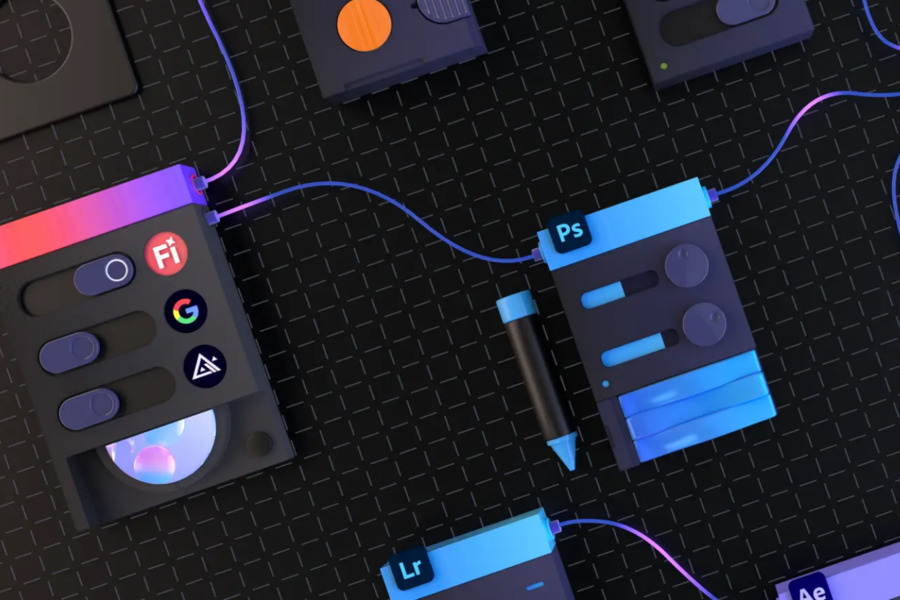In a landmark decision that significantly expands access to advanced artificial intelligence tools, OpenAI has announced that its powerful organizational feature, ChatGPT Projects, is now available to all users, including those on the free tier. This strategic shift moves a capability once reserved exclusively for paying subscribers into the hands of the platform’s vast free user base, fundamentally altering how millions can structure their interactions with the AI.
This update represents one of the most substantial expansions of OpenAI’s “freemium” model to date. For an estimated 80% of ChatGPT users who utilize the free service, the change elevates the platform from a simple, ephemeral chat interface into a sophisticated, structured workspace capable of managing complex, long-term initiatives.
What Are ChatGPT Projects?
For those unfamiliar, ChatGPT Projects functions as a dedicated, customized workspace for virtually any task or topic. It moves beyond the platform’s traditional single-chat format, allowing users to create distinct, isolated projects. Each project operates with its own tailored instructions, persistent memory, and file storage.
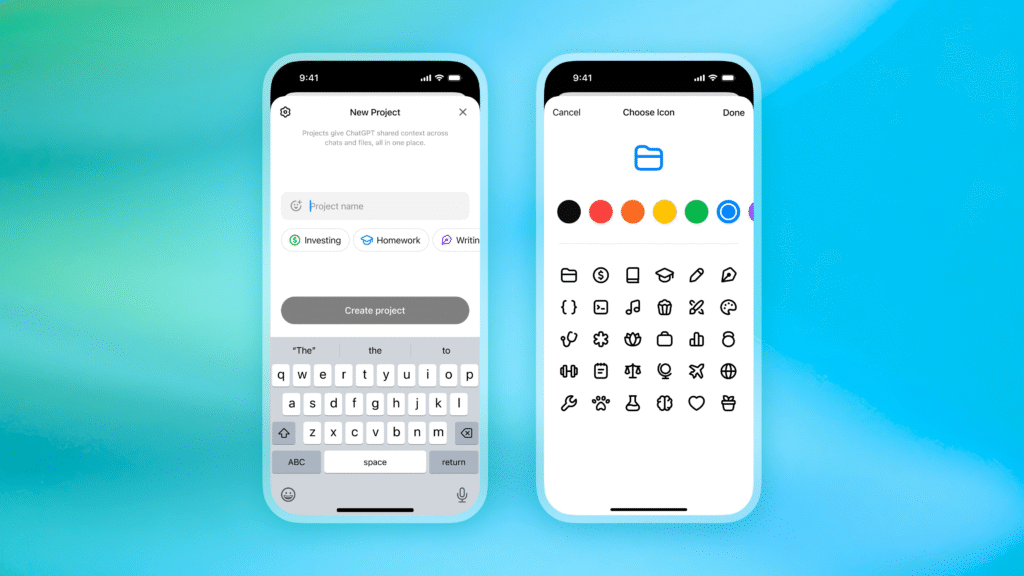
This structure enables users to “train” the AI for a specific purpose within a confined environment. For instance:
- A content marketer can create a “Blog Content” project with instructions to “always write in a casual, engaging tone and suggest SEO-optimized headlines.” The AI will remember this directive for all interactions within that project.
- A software engineer could establish a “Code Helper” project configured to “act as a senior developer for Python and JavaScript, focusing on code optimization and debugging.”
This eliminates the need to constantly re-explain context or re-upload documents, creating a seamless and highly efficient workflow for managing multi-step tasks.
Enhanced Features of ChatGPT Projects
Alongside broadening access, OpenAI has rolled out several new enhancements to the ChatGPT Projects experience, benefiting both free and paid subscribers.
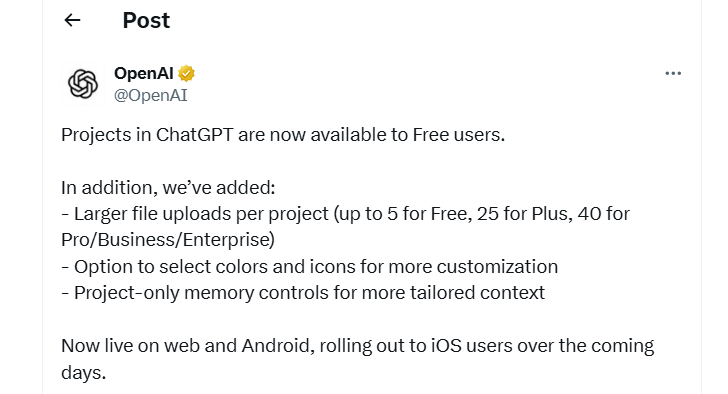
Tiered File Uploads: A critical upgrade allows free users to upload up to five files per project. This facilitates richer interactions, such as cross-document analysis or data synthesis. The tiered structure remains a key upgrade incentive: ChatGPT Plus subscribers can upload up to 25 files, while Pro users enjoy a limit of 40 files per project.
Personalization Options: To improve visual organization and user experience, individuals can now customize each project with a unique color and icon, making it easier to navigate a growing portfolio of workspaces.
Project-Only Memory: Arguably the most significant addition for privacy and focus, this feature allows users to restrict the AI’s memory exclusively to the conversations and files within the current project. When toggled on, it ensures the AI does not draw upon or reference information from any other chats or projects.
This is a critical development for professionals handling sensitive information—such as legal advisors reviewing contracts, researchers analyzing proprietary data, or students compiling notes—ensuring complete confidentiality and context isolation within their dedicated workspace.
A Deeper Dive into the “Freemium” Model
OpenAI’s decision to make ChatGPT Projects accessible to free users is not just a user-friendly update; it’s a calculated strategic move in a fiercely competitive AI landscape. With rivals like Google’s Gemini, Microsoft’s Copilot, and Anthropic’s Claude all vying for market share, OpenAI needs to continually prove its value and maintain its market leadership.
By offering a taste of a premium, workflow-oriented feature for free, OpenAI aims to achieve a few key objectives:
- Increase User Engagement: The feature encourages free users to spend more time on the platform and to integrate ChatGPT into their daily work and study routines.
- Showcase Value: It demonstrates the power and utility of a structured, customized AI workspace, which can be far more productive than a basic chat interface.
- Drive Conversions: By making the file upload limits a key differentiator, OpenAI can subtly nudge its most engaged free users toward a paid subscription to unlock greater capacity and power.
This move reinforces the “freemium” model: provide enough value for free to attract and retain a massive user base, while offering clear, tangible benefits that motivate a portion of that user base to upgrade.
Final Thoughts on ChatGPT Projects
OpenAI has indicated that this is just the beginning for the ChatGPT Projects feature. Future updates are expected to include full support for iOS, bringing this structured workflow to mobile devices. There are also plans to integrate more advanced tools, such as deeper research capabilities and enhanced voice interaction modes, directly into projects.
These future developments promise to make ChatGPT an even more powerful tool for complex tasks, further cementing its role as an indispensable AI assistant. This latest update, however, is the one that truly democratizes organized AI workflows, opening up a world of possibilities for millions of users worldwide.
